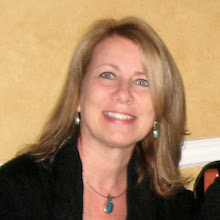 Would I ever find, in the years ahead of me, that true meeting between a hidden life and a hidden language out of which true form would come -- the form of the true poem?
Would I ever find, in the years ahead of me, that true meeting between a hidden life and a hidden language out of which true form would come -- the form of the true poem?--Eavan Boland
----------
Eavan Boland ponders this question as an Irish poet and woman in Object Lessons: The Life of the Woman and the Poet in Our Time (1994). I read this book with great hunger when I first dove into the thrilling depths of truly writing poetry -- when, after years of savoring poetry, of writing pieces mostly for myself, I decided to devote a serious intensity to writing. In a strange way, this book gave me permission to be who I needed to be artistically, to find and transcribe my own truth. To define my poetry in my own individual way.
This is Boland's thought on her position as a poet:
Gradually the anomaly of my poetic existence was clear to me. By luck, or its absence, I had been born in a country where and at a time when the word woman and the word poet inhabited two separate kingdoms of experience and expression. I could not, it seemed, live in both. (p.114)
She goes on to describe, in a vivid and moving manner, the path of her poetry's evolution within a culture, as a woman. In a way it's her nonlinear autobiography, studded with gems of revelation as she finds her way. For instance:
All good poetry depends on an ethical relation between imagination and image. Images are not ornaments; they are truths. (p. 152)
I love that. And later:
No poetic imagination can afford to regard an image as a temporary aesthetic maneuver. Once the image is distorted, the truth is demeaned. (p. 152)
She ends the chapter with this powerful statement:
If a poet does not tell the truth about time, his or her work will not survive it. Past or present, there is a human dimension to time, human voices within it and human griefs ordained by it. Our present will become the past of other men and women. We depend on them to remember it with the complexity with which it was suffered. As others, once, depended on us. (p. 153)
The initial quote was found on p. 119.
The small metal sculpture opens like a matreshka to reveal a single, smaller female figure inside. Is this the unconscious? Poetry? Inner truth, the deeper woman? Rebirth? It seems to illustrate Boland's discussion. It was made of cast bronze by Scott Nelles of Nelles Studios in northern Michigan. Click on image to enlarge.


No comments:
Post a Comment